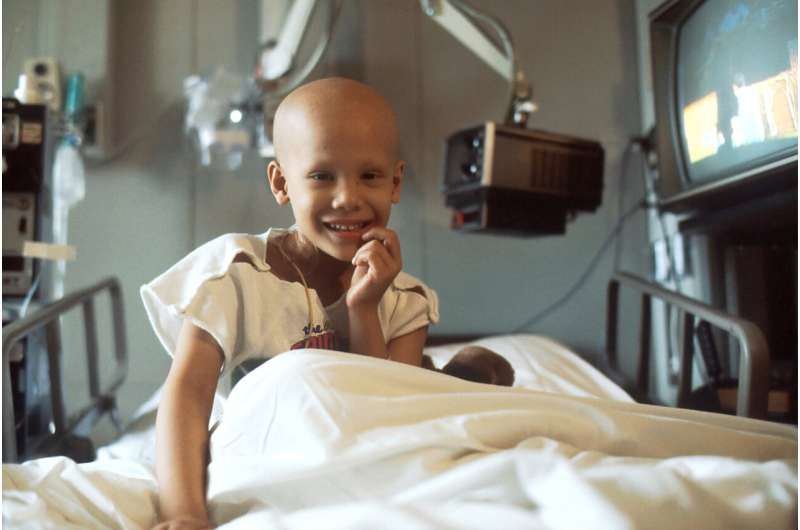This article has been reviewed according to Science X's editorial process and policies. Editors have highlighted the following attributes while ensuring the content's credibility:
fact-checked
trusted source
proofread
Symptom self-monitoring for childhood cancer survivors—what are oncologists' views?

A new international survey, led by the Stanford University Department of Anesthesiology, Perioperative, and Pain Medicine, and the Institute of Psychiatry, Psychology & Neuroscience (IoPPN) at King's College London, has found that better education and counseling about physical symptoms could reduce worry and improve health-related quality of life for childhood cancer survivors.
The study, published in JCO Oncology Practice, investigated pediatric oncologists' beliefs regarding the importance of symptom self-monitoring and the degree to which symptom self-monitoring was perceived to cause stress and worry for patients who are 'off therapy' (the absence of new and/or established lesions while the patient is off all systemic therapy for at least two months).
Survivors of childhood cancer often report self-monitoring for, and worrying about, symptoms of disease recurrence and secondary cancers. However, symptom-related worry is associated with poorer health-related quality of life. The study addressed the need for greater research on the topic of symptom self-monitoring for people living beyond cancer, and the lack of information regarding whether or how oncologists should guide patients on symptom self-monitoring or symptom-related distress.
"Our study highlights the importance of medical professionals offering support and anticipatory guidance to young cancer survivors regarding which symptoms may and may not be medically concerning. Two things that clinicians could do to help is to normalize symptom-related worry after cancer, and to ask young survivors what symptoms they're worrying about—these simple steps could help reduce unnecessary worry and improve quality of life," says Dr. Lauren Heathcote, Health Psychology Section, Department of Psychology, IoPPN
The study found that a core rationale for encouraging symptom self-monitoring was to empower patients, stating that this needs to be combined with providing guidance and reassurance. Providing anticipatory guidance about which symptoms would and would not be a cause for concern may be helpful to mitigate unnecessary worry. Oncologists identified a need for education regarding how to communicate around symptom self-monitoring and the potential utility of a screening tool to identify those who worry excessively.
More information: Sarah N. Webster et al, International Survey of Pediatric Oncologists' Beliefs and Communication Practices Regarding Symptom Self-Monitoring by Childhood Cancer Survivors, JCO Oncology Practice (2023). DOI: 10.1200/OP.22.00630
















